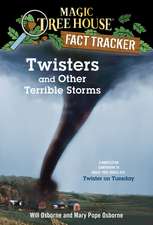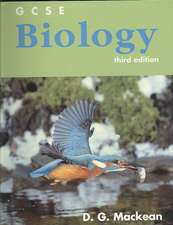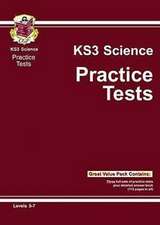The Scientific View of Sport: Perspectives, Aspects, Issues
Editat de O. Grupe Contribuţii de H. Baitsch Editat de D. Kurz Contribuţii de H.-E. Bock Editat de M. Teipel Contribuţii de M. Bolte, W. Bokler, H.-W. Heidland, F. Lotzen Limba Engleză Paperback – 10 noi 2011
Preț: 642.68 lei
Preț vechi: 756.09 lei
-15% Nou
Puncte Express: 964
Preț estimativ în valută:
122.98€ • 128.66$ • 102.16£
122.98€ • 128.66$ • 102.16£
Carte tipărită la comandă
Livrare economică 02-16 aprilie
Preluare comenzi: 021 569.72.76
Specificații
ISBN-13: 9783642654619
ISBN-10: 3642654614
Pagini: 300
Ilustrații: VI, 288 p.
Dimensiuni: 170 x 244 x 16 mm
Greutate: 0.48 kg
Ediția:Softcover reprint of the original 1st ed. 1972
Editura: Springer Berlin, Heidelberg
Colecția Springer
Locul publicării:Berlin, Heidelberg, Germany
ISBN-10: 3642654614
Pagini: 300
Ilustrații: VI, 288 p.
Dimensiuni: 170 x 244 x 16 mm
Greutate: 0.48 kg
Ediția:Softcover reprint of the original 1st ed. 1972
Editura: Springer Berlin, Heidelberg
Colecția Springer
Locul publicării:Berlin, Heidelberg, Germany
Public țintă
ResearchDescriere
progress and happiness - however these terms may be understood in detail - as a significant and constitutive element of scientific inquiry. In this sense the question of the way in which sport really benefits people and contributes to their happiness, and under which individual and social conditions, is a scientific question. It assumes special significance when the fact is taken into account that in the field of sport science a general scepticism is shown towards those dogmas and pedagogical theses which take such an interpretation for granted in the absence of a firm empirical foundation and a critically evolved theory. Sport and Sport Science Sport and exercise, physical culture and education in sport (physical training), gymnastics and touring combined with some form of sport are-as the present report distinctly shows-all over the world among the most striking social phenom ena of today. At first sight they seem to be uncomplicated, clear and comprehensible for everybody; they stand for a type of solidarity which is independent of differences in ideological-political outlook, and sometimes exhibit an almost archaic intensity and attraction; they are supported by the active participation or at least the interest of very many people in many parts of the world and are endued with specific func tions, varying in importance, of a medical (therapeutical, prophylactic, rehabilitative), pedagogical, psychological and social character.
Cuprins
Perspectives of the Philosophy of Sport.- Sport as a Medium of Self- and Life-Fulfilment.- Sport as “Excess Strength” and a Root of Creative Living.- Sport as Play.- Sport as an Aesthetic Phenomenon.- Sport as “Ethical Training”.- Sport as a Reaction Compensating for and Adjusting to the Conditions of Living in the World of Industrial Labour.- Sport as a Sign-World.- Sport as Safety-Valve for Aggression, Instinctive Reaction for the Preservation of the Race, and Discharge through Appetency.- Sport as a Means in the Class Struggle, of Increasing Production and Overcoming Alienation.- Sport as Symbolized Father-Son Conflict and as Substitute Narcissistic Satisfaction.- Sport in Theological Perspective.- Sport in Catholic Theology in the 20th Century.- From the Turn of the Century to the End of the First World War.- Catholic Theology and Sport from 1945 to the Present.- The Antropological Change in Theology.- Deeper Insight into the Statements of Revelation.- The Re-Assessment of the Body in Theological Literature.- Conclusion.- Problems and Trends in Protestant Theology.- Theology and Sport—an Unsatisfactory Relationship.- On the Genesis of the Unsatisfactory Relationship.- Historical Points of Contact.- Confrontation: Points of Contact.- Corporality and Experience of the Self and the World.- Sport and the Achieving Society.- Play.- Sport Ideology.- Some Conclusions.- Sport and Non-Christian Religions.- Some Introductory Observations in the Light of the History of Religions.- Religions of Peoples with no Written Language.- Past Religions.- Present Non-Christian Religions.- Concluding Outline.- On Sociology of Sport — General Orientation and Its Trends in the Literature.- The Problem of Definition.- Methodological Approaches in Sociology of Sport.- Institutions and Disciplines Engaged in the Sociology of Sport.- Organization at the Material and Theoretical Levels.- Programmatic Theoretical and Methodological Discussions.- Sport and the Socio-Cultural System.- Sport and Games in Primitive and Advanced Societis.- Sport in Modern Societies.- Political Systems.- Community.- Socialization.- Sport as a Sub-System and Its Structure.- General Discussion and Analysis.- Norms, Values.- Age, Age-Ranges.- Sex.- Social Stratification, Social Mobility.- Professionalization, Careers.- Formal Organization, Administration, Planning.- Goups in Sport.- Attitude, Motivation, and other Social Psychological Variables.- Spectatorship, Collective Behaviour.- The Structure of Single Sport Disciplines and Games.- Sport and Institutions.- Family.- Education and School.- Religion and Church.- Economy.- Mass Communications.- Sport and Social Problems.- Sport and Leisure.- Sport and Work.- Minorities.- Delinquency.- Other Social Problems.- Miscellaneous.- Summary and Conclusion.- Sport from the Educational and Psychological Points of View.- The Pedagogics of Sport in West European Countries.- First Steps Toward a New Motivation of Physical Education.- The Question of Teaching Contents-Didactics of Sport.- The Question of Teaching Procedures—the Methodology.- Sport Psychology in West European Countries.- Aspects of General Psychology.- Aspects of Personality Psychology.- Aspects of Social Psychology.- Aspects of Psychopathology and Psychotherapy.- Aspects of Pedagogical Psychology.- Sport Psychology in the Socialist Countries of Europe.- Points of Sport—Psychological Research in Individual Countries.- Psychological Preparation of Athletes for Contests.- Psychological Foundations of Athletic Activity.- Tendencies of Socialist Sport Psychology.- Sport Pedagogics in the United States.- Physical Education as an “Academic Discipline”, as a Field of Study and Research The Fundamentals of Methodical Research as Regards Sport and Physical Education.- Points of Research Emphysis in the Field of Physical Education.- Open Questions and Tasks for Future Sport Pedagogics Research.- Sport Psychology in North America.- Motor Behaviour and Motor Learning.- Personality Psychology.- Development Psychology in Sport.- Social Psychology of Sport.- Sport and Sport Psychology in Japan.- Physical Education in Schools and Universities.- Extra-Curricular Sport.- Popular Sport.- Sport Psychology.- Contributions to Sport Medicine.- Lung Function, Respiration, and Metabolism in Sport.- Lung Volumes.- Ventilation.- Alveolar Ventilation and Dead Space.- Diffusion in the Lung.- Gas-Transportation in the Blood.- Respiration Control During Exertion.- Respiration as a Limiting Factor of Performance.- Maximum Oxygen Uptake/min ( = Aerobic Capacity).- Oxygen Uptake and Oxygen Debt.- Adaptation of Metabolism in Sport.- Energy Metabolism of the Heart and Skelet Muscle.- The Morphological and Biochemical Differentiation of the Muscle Tissue as a Result of Training.- Protein Metabolism and its Relationship to Adaptation to Training and the Recuperation Capacity of the Body.- The Effects of Training on the Heart and Circulation.- The Morphological Effects of Training on the Heart and Circulation.- The Functioning of the Trained Heart and Circulation.- Preventative and Rehabilitational Effects of Training on the Heart and Circulation.- Sport Injuries and Damage to the Locomotor System.- Frequency, Severity, and Location of Sport Injuries.- Sport Damage.- Damage to Spine and High Performance Sport.- Summary.- List of Contributors.





![Kitchen Chemistry [With CDROM]: Rsc](https://i4.books-express.ro/bt/9780854043897/kitchen-chemistry-with-cdrom.jpg)
